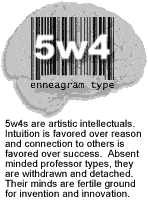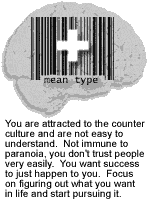quick oil pastel. not my usual style(s). i trust it is not a sign of impending religiousity.

slow oil pastel. done in arizona.
for a change this morning i thought i would post recent email correspondance. it is a good example of why pointy headed intellectuals like myself cannot park their bicycles straight.
reply to email---------------------------------
>
> The word monad comes from the greek word monos (from the word mono,
> which means "one", "single", "unique") and has had many meanings in
> different contexts:
>
> 1. Among the Pythagoreans (followers of Pythagoras) the monad was
> the first thing that came into existence.
hmmm. i thought it was eternal, unchanging, the One. so it exists beyond time and location always.
> The monad begat the
> dyad, which begat the numbers, the numbers begat points, which
> begat lines, which begat two-dimensional entities, which begat
> three-dimensional entities, which begat bodies, which begat the
> four elements earth, water, fire and air, from which the rest of
> our world is built up. The monad was thus a central concept in
> the cosmology of the Pythagoreans, who held the belief that the
> world was - literally - built up by numbers. (The source of this
> claim is Diogenes Laertius book Lives of Eminent Philosophers.)
i thought the dyad was the source of the manifest world (via chain of being). the monad somehow eminates it.
in vedic thought and other wisdom traditions there is the One (Brahma) and there is maya, sort of a consort of the One which somehow playfully produces it, and maya begins the cascade of manifest creation down to human conciousness, at which point the manifest begins the long climb back to the one. this process necessarily involves concious evolution - the personal and transpersonal conciousness. when the seer and the seen disappear bingo God realization.
the brahma-prana split is repeated by many traditions, eg parusha-prakti, nirvana-samsara, theos-logos, father son/logos, the One-Nous (plotinus), shiva-shakti, brahman-kali (ramakrishna).
> 2. Within certain variations of Gnosticism, especially those
> inspiered by Monoimus, the monad was the higher being which
> created lesser gods, or elements (similar to aeons). This view
> was according to Hippolytus inspired by the Pythagoreans.
philip k dick has a lot to say about this one, albeit in terms of sci-fi. the gnostics believed, similar to paul, that matter was evil and imperfect because it was an imperfect production of imperfect or evil maker - a false god. the real maker was far away (11 emanations or levels i think) and only infrequently broke thru into the manifest, ie like avatar.
> 3. In the writings of the philosopher Gottfried Leibniz, the monads
> appear as spiritual entities which make up the essence of our
> world. They do not interact with our world (are "windowless"),
> and do not have volume (do not take up space) and are thus
> impossible to detect by scientific methods. The arrangements of
> the monads make up the faith and structure of this world, which
> to Leibniz was "the best of all possible worlds".
very different monads. because they are plural. but still beyond time and location.
i'm reading wilber's online but still unpublished stuff which will i think become volume 2 of everything trilogy. he is saying there are no intermediate preexistants (as in platonic forms, jungian archtypes). instead, as conciousness evolves they become a pattern, albeit invisible. yeterday's a postori become todays a priori.
sure is fun to write about this stuff and not have a clue about it.
chris






















































